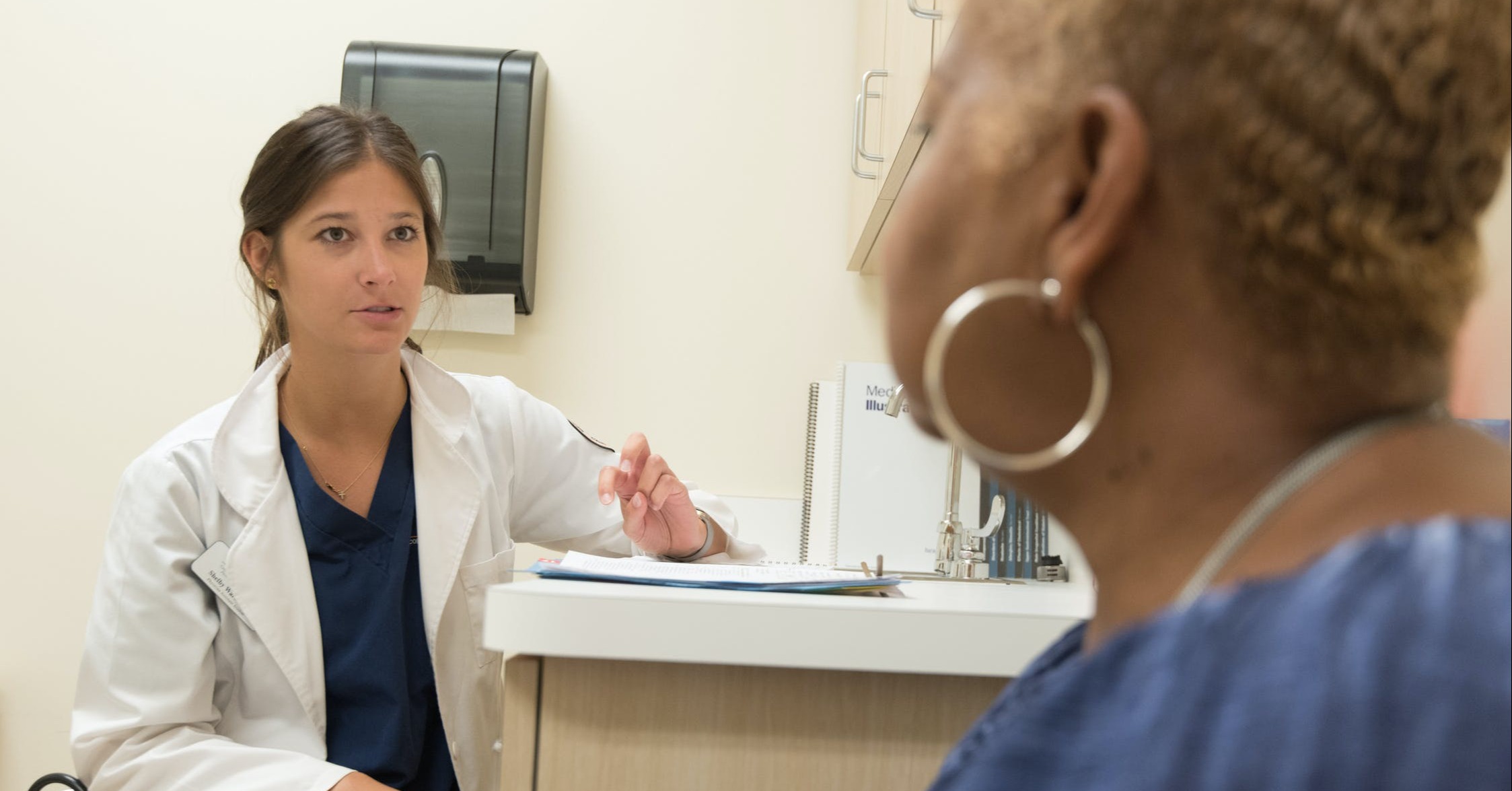
Physician Assistant vs. Doctor: What Is the Difference?
Physician assistants diagnose and treat patients, prescribe medication, and perform [...]

You want to treat patients. You don’t want to—or can’t—go to medical school. It’s a common dilemma, one that often leads people into nursing careers.
There is, however, a third option: you could become a physician assistant (PA). PAs are not doctors, but they perform many of the same tasks as doctors: they diagnose, monitor, and prescribe medications. They also have one of the best-paid hands-on jobs in healthcare and work in nearly every specialty area—including surgery, where they assist during operations.
If you live in the Pittsburgh area and don’t want to relocate, you won’t exactly be spoiled for choice when it comes to physician assistant programs. There are only three PA programs accredited by the Accreditation Review Commission on Education for the Physician Assistant (ARC-PA) in the city. Fortunately, all three are known for their programs’ quality and their graduates’ accomplishments, and all three can prepare you to become a PA in Pennsylvania.
In this article, we showcase the physician assistant programs in Pittsburgh and cover the following:
The licensure requirements for physician assistants vary from state to state. In Pennsylvania, as in most states, aspiring PAs must have a bachelor’s degree in any subject and a master’s degree from an accredited PA master’s program. The Master of Physician Assistant Studies (MPAS), is the most common graduate degree for physician assistants, but graduate programs for PAs also go by a variety of other names, including:
Core coursework in all these programs covers:
Becoming a PA involves more than taking classes, though. PA graduate students also complete more than 2,000 hours of clinical rotations before graduation. After graduating, aspiring PAs are eligible to sit for the 300-question Physician Assistant National Certifying Exam (PANCE), a marathon five-hour multiple-choice test. Once they pass the PANCE, they’re awarded the Physician Assistant-Certified (PA-C) credential. With a PA-C, getting licensed is a matter of filling out the Pennsylvania State Board of Medicine’s licensure application, paying a $30 application fee, and submitting a resume plus a clean report from the National Practitioner Data Bank.
There’s a lot of competition for open spots across physician assistant programs because there are more applicants than openings. About 27,000 people applied to PA programs in 2016-17; just over 8,000 were accepted. Most master’s programs for physician assistants admit around six percent of applicants, but some admit less than one percent. Because colleges and universities have to sift through so many applications, most schools’ GPA and professional experience requirements are rigorous. Schools want to weed out unfit applicants as quickly as possible.
The first thing you’ll need to apply to a PA program is a bachelor’s degree. While many MPAS programs don’t require applicants to have majored in a specific topic, they often require applicants to have taken a pretty long list of related undergraduate courses in:
Next, you’ll need 500 to 2,000 hours of experience working in a healthcare environment. The typical MPAS candidate at a highly ranked college or university has usually worked in roles like:
Some schools also require applicants to submit GRE scores, proof of the American Heart Association’s Healthcare Provider BLS certification, verification of PA shadowing experience, CASPer Situational Judgment Test scores, and other materials. You may even need to pass a background check before you can officially enroll in a PA graduate program.
Pittsburgh is a medium-sized city with 29 colleges and universities, but only some of them offer physician assistant programs.
Chatham University’s MPAS is an 86-credit hour, six-term, full-time cohort program. It’s billed as accelerated, though the program itself lasts 24 months (average for PA degrees). Accelerated in this context may refer to how quickly students complete core coursework or how quickly the MPAS curriculum integrates hands-on experiences and real-world patient interactions.
The first year of the program is made up of two terms in which students take classes like:
The second-year curriculum consists almost entirely of clinical rotations in clinical settings around the United States and abroad. Students explore specialty areas like family practice, internal medicine, pediatrics, emergency medicine, surgery, and women’s health in nine clinical experiences.
This was the first PA program to incorporate problem-based learning into its curriculum, and it boasts a 99 percent average first-time PANCE pass rate. Tuition for the Chatham MPAS program is $111,452 total.
The Duquesne University Physician Assistant Studies program was the first five-year, entry-level Master’s degree program in the United States and remains one of the few freshman-entry PA programs, through which students earn both a Bachelor of Science in Health Sciences degree and a Master of Physician Assistant Studies. The 91-credit pre-professional segment of the program lasts three years; it provides students a strong foundation in the humanities, basic sciences, and medical sciences. The 89-credit professional segment consists of:
Core classes include:
Graduate students complete clinical rotations in emergency medicine, behavioral health, general surgery, pediatric medicine, internal medicine, family medicine, and women’s health plus one elective rotation. All Duquesne PA program graduates leave school with a well-rounded clinical background.
The program culminates in the completion of an evidence-based medicine research project paper suitable for publishing. Other features of the program include small-group simulations involving adult, child, and birthing mannequins; the annual Substance Use Disorder Symposium; and opportunities to work in unique patient-care environments like a children’s bone marrow transplant center and the Center for Organ Recovery and Education.
The total cost of the Duquesne University Physician Assistant Studies program is $273,829.
If you want to work in medicine and earn a solid salary without going too deep into debt, becoming a physician assistant in Pennsylvania is a smart move. PAs in PA earn good money. The average physician assistant earns about $112,000. In Pennsylvania, the average salary is a little less—about $107,000—but the highest-paid PAs can earn $130,000. Physician assistants who pursue national certifications and education in specialty areas like psychiatry, pediatrics, or emergency medicine can earn even more.
Money isn’t the only reason to earn an MPAS, though. According to the US Bureau of Labor Statistics, PAs work in the seventh-fastest growing profession in the country. Physician assistants command relatively high salaries right out of graduate school because the demand for PAs is higher than the supply of qualified professionals. They also seldom stay unemployed for long and may even get recruited before graduation.
Given the value of an MPAS, it may make sense to broaden your search beyond physician assistant programs in Pittsburgh. There are 23 ARC-PA-accredited physician assistant programs in Pennsylvania, including highly ranked programs at Seton Hill University in Greensburg and Pennsylvania State University – College of Medicine in Hershey. If none of the Pittsburgh MPAS programs is a good fit, one of the other PA MPAS programs might be.
(Last Updated on February 26, 2024)
Questions or feedback? Email editor@noodle.com

Physician assistants diagnose and treat patients, prescribe medication, and perform [...]

While online physician assistant programs do not offer virtual clinical [...]

Physician assistants diagnose, treat, and counsel patients, just as doctors [...]

Physician assistants must pass the National Commission on Certification of [...]

he prerequisites for admission to a physician assistant master's program [...]
Categorized as: Physicians Assistant Studies, Nursing & Healthcare